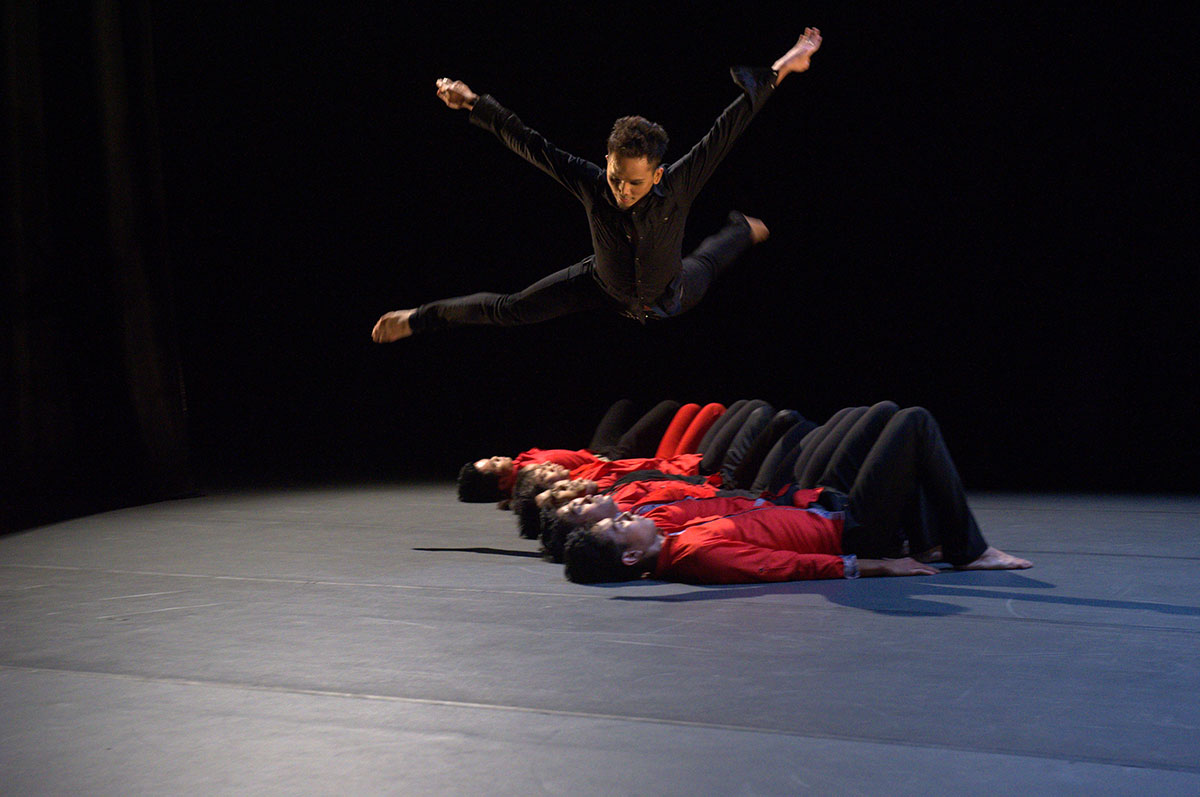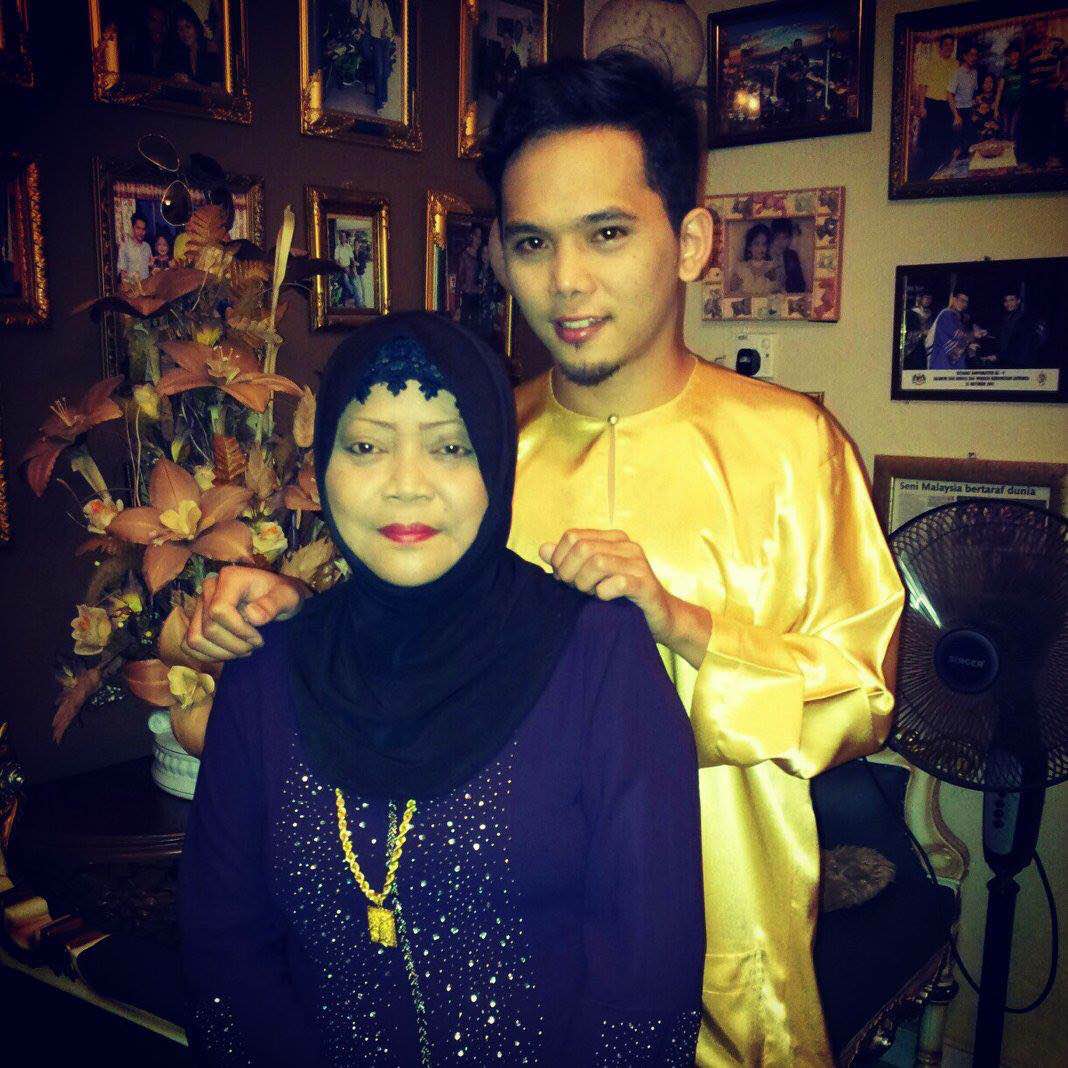Fairul Zahid traces the beginnings of his dance career, and recounts the challenge of gaining his mother’s acceptance while forging his path.
The dance world was not my first choice. I started in the sports world; the 100-meter and 200-meter sprints were my favorite running events. But I realized I did not have the right body build and natural talent. When I made my decision to leave the sports school and venture into another field, my mother asked me what other field I could do. My answer was very simple: Let time decide. After several months, I was attracted to an activity that was probably not attractive to other male teenagers out there: dance. How dancers move in sync with the music captured my heart, and led me to venture into the field.
I began with the Malay traditional dance called zapin. I got involved quietly without my parents’ knowledge. No parent would want to see their son be called a “softie” amongst their friends and relatives. But dancing the zapin dance made me feel happy, and I enjoyed myself very much, especially when I got to meet new people. After several months of being a zapin dancer, my mother began to feel suspicious of my behavior of often coming home late, sweaty, with body odour and dirty feet. She started following me when I was going out of the house and finally she discovered what I had been doing. The moment I got home, she pulled me to my room and caned me, saying that such activity does not give any benefit to life. In between my sobs, I answered, “Give me a chance to prove to you that I can succeed and make you proud,” but she only responded, “That’s impossible!”
For a while I did not attend my dance classes to avoid being caned by my mother, and my friends started asking why I had not come for practice. I could only answer that I had “wanted to rest for a while”. Several weeks later, when the situation had become stable, I began to attend dance classes again without my mother’s knowledge. I participated in various competitions and went all over the place in my pursuit of dance.
My desire to dance increased until, at the age of around 17, I started to search for other places where I could expand my hidden talent. I went to meet with a cultural leader from Yayasan Warisan Johor (Johor Heritage Foundation) named Hamidah. She was a firm and fierce person. She consistently wanted perfection in every movement. Yet, a question started forming in my mind: “What is perfection?” There is not even one human on this earth who has perfection, because we are not the Prophet and not God. My desire and passion finally made me ask Puan Hamidah and she answered, “Perfection naturally does not exist, but make yourself close to perfection so that you can walk in line with perfection.”
For years I danced the zapin and then I moved on to other dances such as asyik, layang mas, inang, joget and so on. My heart always wanted more dance; I felt like I had failed if I was not physically satisfied. I was famous for my very rebellious attitude in school, rebutting all the teachers’ arguments and questioning every command. Cikgu Azhar, one of the music teachers at my school, asked me, “Are you going to dance forever? And are you already prepared to accept the difficulty of life as a dancer?” I answered that if there is difficulty then there is also ease, and nothing on this earth is difficult if we work hard.
Without me realizing it, my mother actually knew I was still dancing. One evening I came back home as usual to find a big package beside the door of my house. I opened it and found all my clothes inside. I knocked on the house door softly calling out, “Mama…Mama…open the door…Adik is home…” Loudly she replied, “You get out of this house and don’t ever come back if you feel that dance can support your life.” Which child would not be sad if driven out of the house by his own mother? I kept knocking on the door and begged her not to act like that but she ignored me. At last I decided to sleep elsewhere. The next day I called out for my father and it worked. He opened the door and asked me to get in the house quickly before my mother would realize.
Again, I decided to take a break from dance for a few weeks so as to cool the situation down. But I suddenly received a call from a teacher who told me about a university which focuses on the field of arts. I got very excited and asked where it was. He said it was in Kuala Lumpur and was called the National Arts Academy (now known as the National Academy of Arts, Culture and Heritage, or ASWARA). I searched for it on the Internet and sent in my application. A few weeks later I was called for an interview with the ASWARA lecturer Hajijah Yaakob.
Finally I was accepted to ASWARA, yet I still didn’t know what I should do. I was afraid to tell my mother, and I had no money if I were to run away. At last I braced myself and voiced my desire to my mother. Again I was scolded and chased out of the house. But I was adamant to continue this struggle and was determined to prove that I could do better. With a heavy heart, I asked for the blessings of both my parents before leaving. My mother did not give her blessing, but my father had realized my passion. Quietly, he gave me RM100 to start my life as a dancer.
I was so excited to step into ASWARA, it felt as if I was a newborn. I attended one class after another: contemporary, ballet, Malay, Indian, Chinese as well as Sabah and Sarawak dances. Other opportunities appeared before me, yet I often rejected them as I wanted to put my studies first. But at last there was an opportunity that I was completely excited about: So You Think You Can Dance (SYTYCD) Malaysia Season 2. I was not a totally high caliber student at ASWARA. I was stubborn, liked to skip classes and get into fights. With such bad attitude, I was prohibited by the university from entering SYTYCD. Yet, I was stubborn and continued to remain in the competition. At last, I succeeded in reaching the Top 20. In the competition, I needed the spectators to vote for me, but who would want to do that? Then I decided to call my parents as well as all of my relatives to come and watch the competition live. I wasn’t confident that my mother would turn up but I was certain that my relatives, my sister and my father would come.
The event started grandly, with shining stage lights, and loud cheers and screams from the audience, which made me nervous and excited. As I stepped onto the stage, something magical happened. I saw a woman in her forties standing with a banner that read “FAI”. She had curly hair and was wearing a black top with black pants. It was my mother. My tears dropped onto the ground before I started my dance routine. That was the first time my mother had come to watch me perform. When the show was over, I wasn’t allowed to go out to the audience but I was stubborn as always and just ran out to look for my mother. Fast as lightning, my eye caught sight of her curly hair and I immediately ran to her and hugged her without feeling any shyness amongst the crowd. Tears fell once again, this time onto my beloved mother’s shoulder, as she said to me, “Mama is proud of you.”
I continued my life as a dancer and a student at ASWARA and now at New York University. I love contemporary dance and have been starting to master it carefully under the guidance of my teachers. Life as a dancer has its ups and downs, but the strong positive energy that I have gotten from other people thus far has made me who I am today. This includes the support that I had finally received from my mother, Maskiah Jahari. In loving memory, al-Fatihah.
 Fairul Zahid is an MFA in Dance student at New York University’s Tisch School of the Arts. More
Fairul Zahid is an MFA in Dance student at New York University’s Tisch School of the Arts. More
To contact the author:
![]()
Featured photo: Fairul Zahid [above] in “Full House” by Fauzi Amirudin, Damansara Performing Arts Centre, 28 June, 2013. Photo © James Quah



